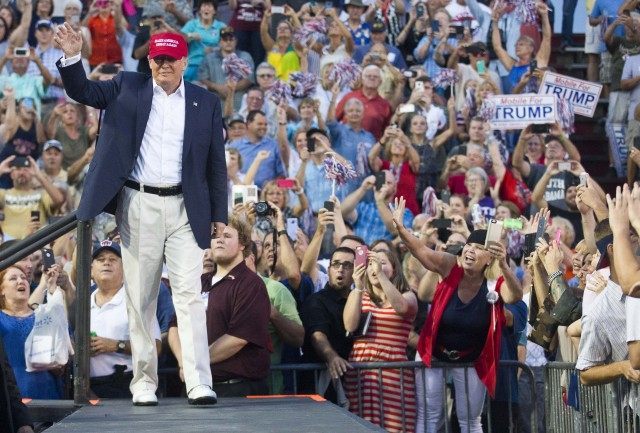From John B. Judis writing at National Journal:
In 1976, Donald Warren—a sociologist from Oakland University in Michigan who would die two decades later without ever attaining the rank of full professor—published a book called The Radical Center: Middle Americans and the Politics of Alienation. Few people have read or heard of it—I learned of it about 30 years ago from the late, very eccentric paleoconservative Samuel Francis—but it is, in my opinion, one of the three or four books that best explain American politics over the past half-century.
While conducting extensive surveys of white voters in 1971 and again in 1975, Warren identified a group who defied the usual partisan and ideological divisions. These voters were not college educated; their income fell somewhere in the middle or lower-middle range; and they primarily held skilled and semi-skilled blue-collar jobs or sales and clerical white-collar jobs. At the time, they made up about a quarter of the electorate. What distinguished them was their ideology: It was neither conventionally liberal nor conventionally conservative, but instead revolved around an intense conviction that the middle class was under siege from above and below.
Warren called these voters Middle American Radicals, or MARS. “MARS are distinct in the depth of their feeling that the middle class has been seriously neglected,” Warren wrote. They saw “government as favoring both the rich and the poor simultaneously.” Like many on the left, MARS were deeply suspicious of big business: Compared with the other groups he surveyed—lower-income whites, middle-income whites who went to college, and what Warren called “affluents”—MARS were the most likely to believe that corporations had “too much power,” “don’t pay attention,” and were “too big.” MARS also backed many liberal prorams: By a large percentage, they favored government guaranteeing jobs to everyone; and they supported price controls, Medicare, some kind of national health insurance, federal aid to education, and Social Security.
On the other hand, they held very conservative positions on poverty and race. They were the least likely to agree that whites had any responsibility “to make up for wrongs done to blacks in the past,” they were the most critical of welfare agencies, they rejected racial busing, and they wanted to grant police a “heavier hand” to “control crime.” They were also the group most distrustful of the national government. And in a stand that wasn’t really liberal or conservative (and that appeared, at least on the surface, to be in tension with their dislike of the national government), MARS were more likely than any other group to favor strong leadership in Washington—to advocate for a situation “when one person is in charge.”
If these voters are beginning to sound familiar, they should: Warren’s MARS of the 1970s are the Donald Trump supporters of today. Since at least the late 1960s, these voters have periodically coalesced to become a force in presidential politics, just as they did this past summer. In 1968 and 1972, they were at the heart of George Wallace’s presidential campaigns; in 1992 and 1996, many of them backed H. Ross Perot or Pat Buchanan. Over the years, some of their issues have changed—illegal immigration has replaced explicitly racist appeals—and many of these voters now have junior-college degrees and are as likely to hold white-collar as blue-collar jobs. But the basic MARS worldview that Warren outlined has remained surprisingly intact from the 1970s through the present.
Read the rest of the story at National Journal.

COMMENTS
Please let us know if you're having issues with commenting.